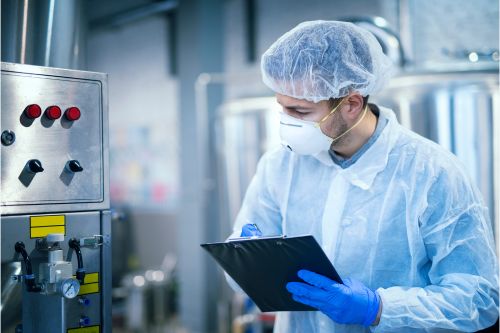Table of Contents
Introduction to microbiology
A Bachelor of Science or BSc in Microbiology offers numerous opportunities for individuals interested in the fascinating world of microorganisms. Microbiology is the study of tiny living organisms, including bacteria, viruses, fungi, and protozoa, and it plays an important role in various industries, from healthcare to biotechnology. A BSc in Microbiology degree opens the door to a wide range of high-paying professions. In this blog, we will explore the top 10 high-paying careers and BSc in Microbiology scope.
Eligibility criteria for BSc in Microbiology
There are some common requirements for admission into a BSc in Microbiology program. Below are the general eligibility criteria-
- Educational qualifications
- You will generally need a high school diploma or its equivalent, such as a GED (General Educational Development) certificate.
- Most programs require that you have completed high school courses in biology, chemistry, and mathematics. These subjects are essential for understanding the foundation of Microbiology.
- Many universities or colleges will have a minimum grade point average (GPA) requirement. The specific GPA requirement can vary, but it is typically in the range of 2.0 to 3.0 on a 4.0 scale.
- Entrance examinations – Some institutions may require you to take standardized tests, such as the SAT (Scholastic Assessment Test) or ACT (American College Testing). The scores from these tests can be part of the admission criteria.
- English language proficiency – If you are an international student or if English is not your native language, you might have to demonstrate English language proficiency. You can take standardized tests such as the TOEFL or IELTS to prove your language proficiency.
- Application materials – You have to fill out the university’s or college’s application form, which may include an essay or personal statement. The application process may also include letters of recommendation, transcripts, and a resume or CV.
- Interview -Some institutions may conduct interviews as part of the admissions process. These interviews are used to assess your motivation, interests, and suitability for the program.
- Prerequisite courses – In addition to having a strong background in biology, chemistry, and mathematics, some programs may require specific prerequisite courses in high school, such as advanced biology or chemistry courses.
- Additional requirements – Certain programs may have additional requirements or preferences, such as participation in extracurricular activities related to science, health, or research.
Career options for Microbiology graduates

Here, we will explore the exciting and promising scope available to BSc in Microbiology. graduates, ranging from research and healthcare to biotechnology and beyond.
Clinical microbiologist
Responsible for identifying and analyzing microorganisms that cause diseases in humans, clinical microbiologists work in diagnostic laboratories, hospitals, and healthcare facilities. They play a vital role in diagnosing and treating infectious diseases, which is especially important in the context of the ongoing global health challenges. The scope of BSc in Microbiology is vast, you can pursue a career as a clinical microbiologist and earn a competitive salary.
Research scientist
Research institutions, pharmaceutical companies, or government agencies employ research scientists in the field of microbiology. They conduct experiments, analyze data, and work on groundbreaking research projects to better understand microorganisms and develop new treatments, vaccines, and diagnostic tools. With a BSc in Microbiology, you can start your career as a research scientist and potentially advance to high-paying positions as you gain experience and expertise.
Pharmaceutical sales representative
By promoting and selling pharmaceutical items to healthcare professionals, pharmaceutical sales representatives play a crucial role in the healthcare industry. A BSc in Microbiology provides you with the scientific knowledge and credibility needed to excel in this field. Pharmaceutical sales representatives often enjoy high salaries, commissions, and various perks.
Medical technologist
Clinical laboratory scientists or medical technologists work in clinical laboratories, conducting tests to help diagnose and treat diseases. They handle complex equipment and are responsible for performing various laboratory procedures. A BSc in Microbiology can provide you with the necessary background to become a medical technologist, and this profession is famous for its competitive salaries.
Quality control analyst

A QC analyst ensures that products meet regulatory standards and quality requirements. They usually work in industries such as food and beverage, pharmaceuticals, and cosmetics. Microbiological testing is a significant part of quality control in many industries, and your expertise in microbiology can make you a valuable asset in these roles.
Biomedical scientist
Focusing on the diagnosis and management of diseases, Biomedical scientists work in healthcare and research settings. They often work in collaboration with other healthcare professionals to interpret test results and contribute to patient care. Your microbiology background will be highly relevant in this field, and it offers competitive compensation.
Epidemiologist
Public health workers or Epidemiologists study patterns and causes of diseases in populations. They are at the forefront of public health efforts, especially during disease outbreaks and pandemics. With a BSc in Microbiology, you can work as an epidemiologist, helping to prevent and control the spread of infectious diseases. This profession often offers competitive salaries, particularly in government agencies and research institutions.
Biotechnology researcher
Creating and improving products and processes for agriculture, medicine, and conservation using biological organisms, biotechnology researchers work in the same field. They develop new products and technologies that harness the power of microorganisms for various applications, from pharmaceuticals to agriculture. Your microbiology background can be a valuable asset in the research, and this field is well-known for its high-paying opportunities.
Environmental microbiologist
Focusing on topics such as soil, water quality, and bioremediation, environmental microbiologists study microorganisms in the environment. They play a crucial role in addressing environmental issues and ensuring the safety of ecosystems. A BSc in Microbiology can lead to a rewarding career as an environmental microbiologist with competitive salaries, especially in research and consulting roles.
Food microbiologist
Ensuring the safety and quality of food products, food microbiologists work in the food processing industry. They conduct tests, develop and implement quality control measures, and research food-borne illnesses. This career path offers competitive salaries and opportunities for advancement, making it a promising option for microbiology graduates.
Key takeaways
- A scope of BSc in Microbiology opens doors to a wide range of high-paying careers in diverse industries, including healthcare, research, biotechnology, and more.
- Eligibility criteria for a BSc in Microbiology typically include a high school diploma or equivalent, prerequisite subjects, a minimum GPA, possibly standardized test scores, and English language proficiency.
- Admission requirements can vary by institution, so it’s crucial to check the specific criteria for the universities or colleges you’re interested in.
- The field of microbiology is dynamic, with opportunities to contribute to healthcare, research, environmental preservation, and the development of innovative technologies.
Did you find this blog informative and want to learn more about studying abroad? Share your thoughts in the comments section below. Click here to contact us for additional information and assistance with your queries.
Liked this blog? Read next: Your guide to obtaining Finland’s student visa in 5 easy steps!
FAQs
Q1. Can I work in academia or become a professor with a BSc in Microbiology?
Ans- While a BSc in Microbiology can lead to teaching positions in secondary education, academic careers in universities typically require advanced degrees, such as a master’s or Ph.D. However, some institutions may hire individuals with BSc degrees as teaching assistants.
Q2. How can I stay updated with the current advancements in microbiology?
Ans- To stay current in the field, you can subscribe to scientific journals, attend conferences, and participate in continuing education courses. Many professional organizations for microbiologists offer resources and opportunities to keep up with developments.
Q3. Which is better, BSc microbiology or medical microbiology?
Ans- General microbiology focuses on the study of microorganisms, whereas medical microbiology focuses on illness prevention and treatment caused by these microorganisms. Both are fascinating professions with promising work prospects and ample research opportunities.






